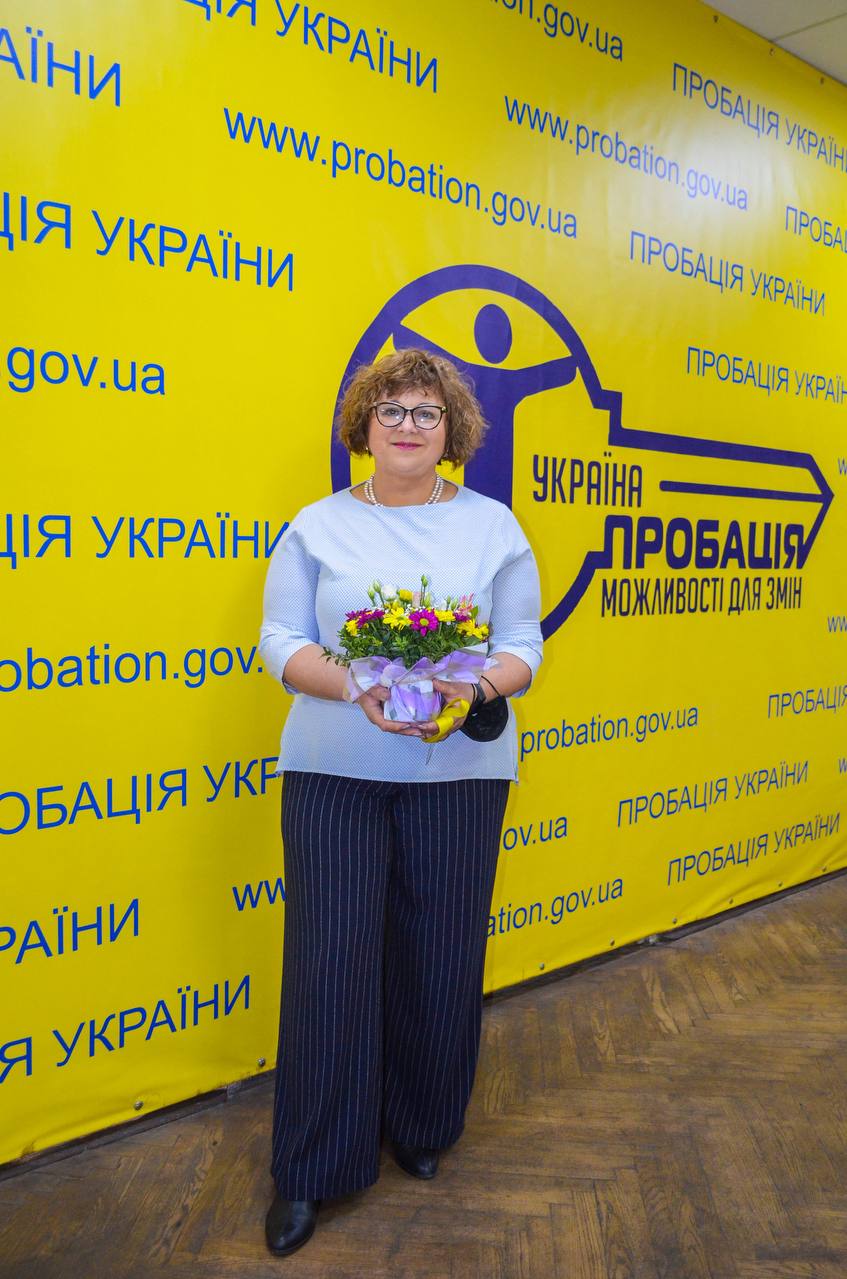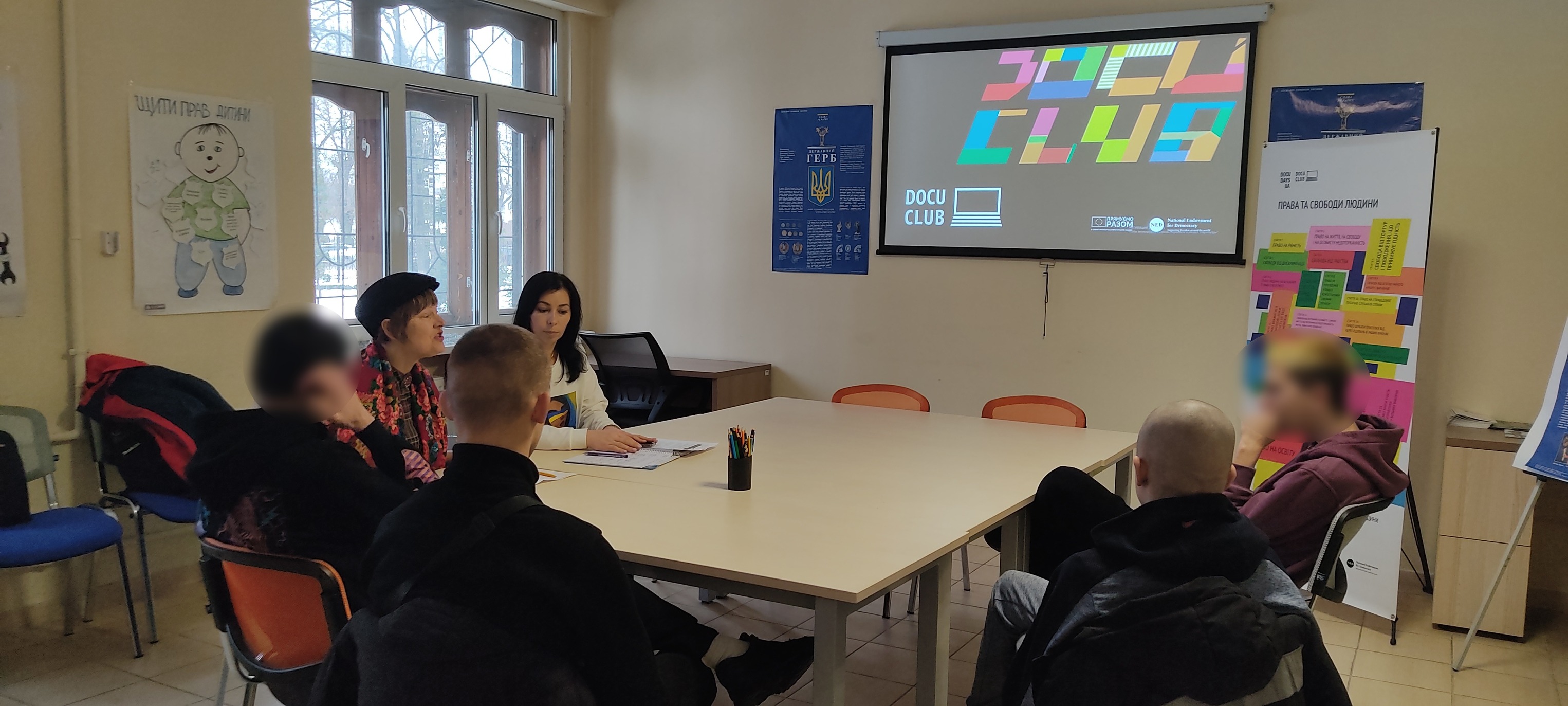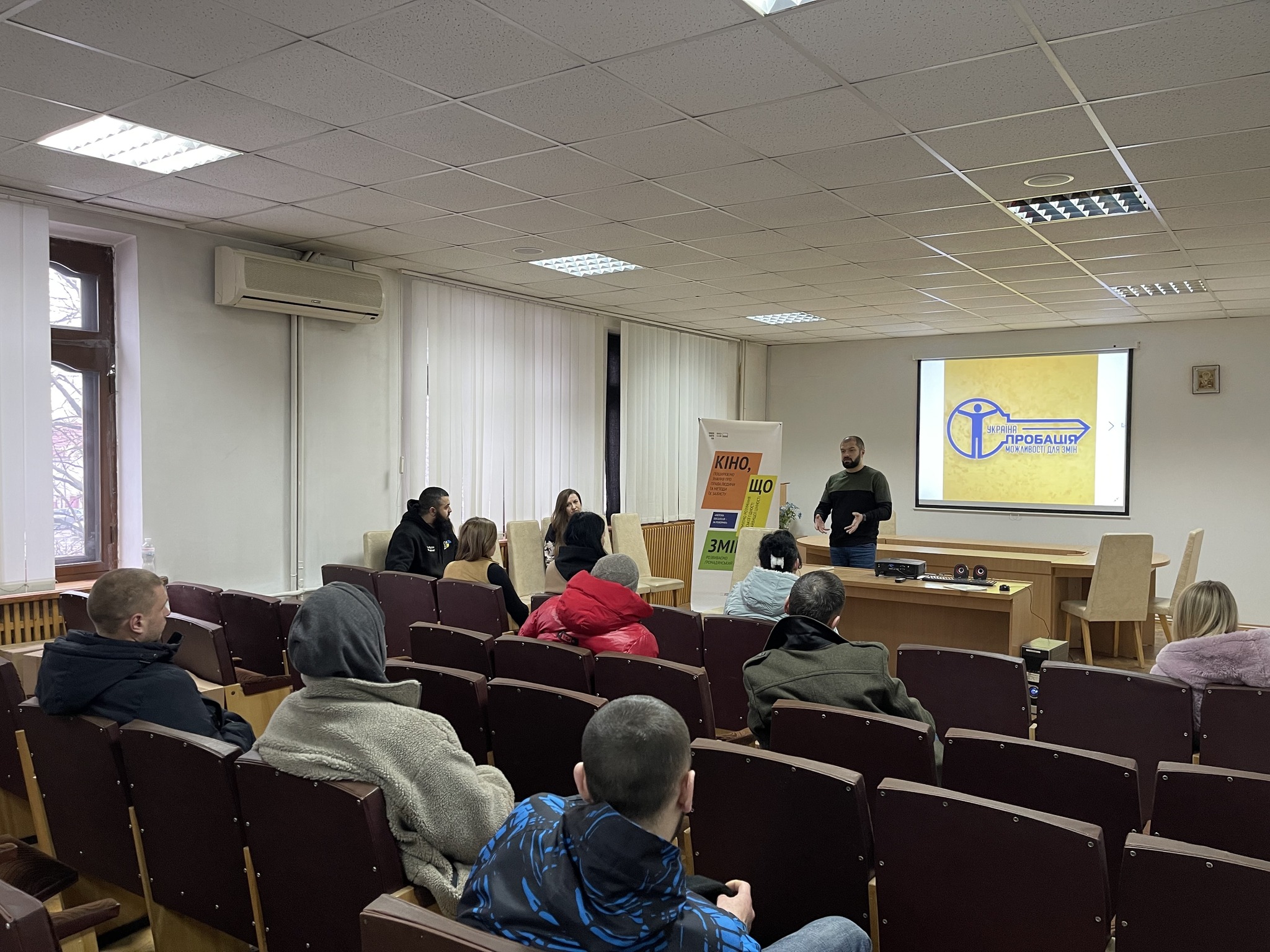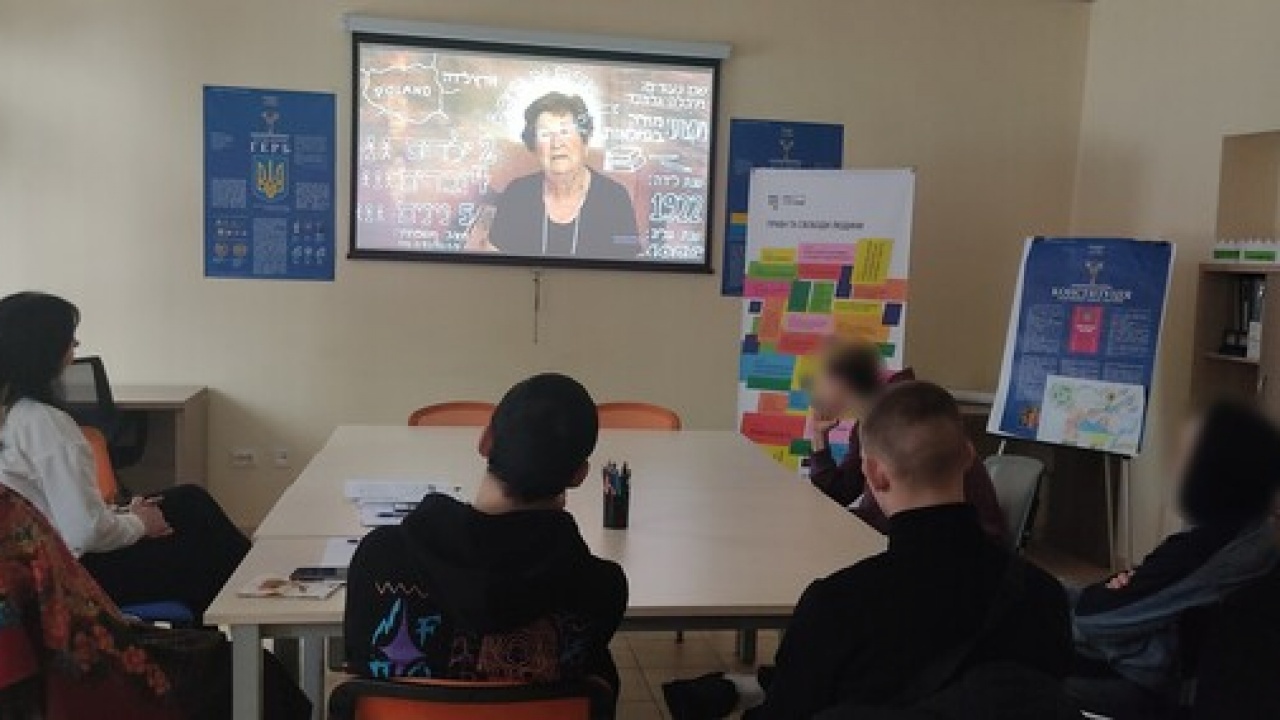The relevant amendments to the Criminal Code come into force on March 26, 2024. They stipulate that people convicted of certain criminal offenses will serve their sentences without isolation from society, that is, without imprisonment. Probation has existed in the world for more than 200 years, but it is a relatively new system of punishment for Ukraine. Its task is to help convicts understand their guilt and ensure that they do not commit repeat offenses in the future. Probation clients, as people who are registered with probation departments are called, are required to comply with certain requirements defined by law and established by a court sentence. This may include restrictions on communication, movement, and leisure activities. Moreover, they have to find employment and fulfill the activities provided for in the probation program. Tetyana Kichata, deputy director of the State Institution "Probation Center," says that the institution's facilities began operating in Ukraine on January 1, 2018. As of today, the Ukrainian probation service is one of the largest in Europe – not because Ukraine has the largest number of offenders, but because of the peculiarities of the administrative structure. Probation departments are located in the settlements that have local courts that impose punishment. Today, the State Institution “Probation Center” comprises 559 facilities with more than three thousand employees.

Tetyana Kichata “We use any means to help change the mindset of our clients, to correct their desire to commit a crime,” says Tetyana Kichata. “Probation is not about avoiding punishment. A person is serving a sentence under a court order, but remains within society, so he or she is not influenced by criminal thinking. The court imposes certain obligations on a person. One of them is to report to the probation department in a timely manner. Our employees assess the risks of committing a second criminal offense for each client. They communicate with relatives and collect recommendations from organizations or enterprises. We need to see a complete picture to understand where a person might stumble. Our task is to reduce these risks. To do this, we need to work on solving psychological problems, overcome the client's drug or alcohol addiction, and help them find employment.” Probation facilities cooperate with various organizations, especially employment centers. After all, the obligation to find a job is often one of the main court orders. Therefore, a probation client must understand that failure to comply with this order will lead to the revocation of probation, and then they will have to go to prison. Preventing a person from committing a second criminal offense while changing his or her way of thinking and attitude to life is not an easy task. It is difficult to achieve this goal by traditional means, such as lectures or educational conversations. The management of the Probation Center was looking for new, more effective tools to work with their clients. Unexpectedly, documentary films became one of such tools. The idea to use human rights documentaries in the work of the probation center came from Lina Babych, the former head of the Zhytomyr District Department of the Probation Center. In 2019, she opened a Docudays UA film club in her department, which was part of the DOCU/CLUB network of documentary film clubs. A year later, the moderator of the film club initiated an advocacy campaign, during which she developed guidelines for the work of film clubs at probation departments. The management of the institution approved these guidelines and was convinced of the effectiveness of the film club's work with clients. The first film clubs at the Center's regional offices were opened in 2019. Last year, this process became massive. Photo from the DOCU/CLUB Network archive “Today, we already have 161 film clubs. I think this is still not enough, but this number is already sufficient to understand how effective this form of work is for us,” Tetyana Kichata shares the first results. “All of our activities are aimed at changing the attitude of the convicted person to the offense he or she committed. We have to change the criminal thinking of our clients. And we believe that documentaries from the DOCU/CLUB Network collection contribute to this. When people watch a film and then start discussing it, they open up. People share their painful experiences, talking about things that they would never share in a questionnaire or survey. All these important points are revealed during the discussion. Then, the probation officer can better understand the needs of a particular person and the ways to help them become law-abiding.” To make this work truly effective, the moderators of the film clubs have undergone several months of training with the DOCU/CLUB Network specialists and are already screening documentaries. “I’ve noticed that our employees were really interested in the learning process. This means they will be able to interest their clients, with whom they work on the execution of a court sentence, in this new form of work,” says Kichata. “Some of our employees are extremely enthusiastic about the film clubs. For example, Kostyantyn Nazarenko from Poltava region and Alina Bereznytska from Kherson region have already become our ‘stars’ and show excellent results. Not only do they successfully work with clients, but also hold open screenings for their colleagues. This is very useful for newcomers; up to 300 viewers attend every event. Documentary films create a positive aura while providing an informal approach to people, and this is very important in our work. I see that more and more employees are interested in this tool, because it is really effective in helping avoid a formal approach and dry lecturing.” This influence has indeed reached out to many people. Today, the Probation Center has more than 66,000 registered cases with various types of punishment: probation, deprivation of the right to hold certain positions or engage in certain activities, community service, or correctional labor. Thus, probation officers have to deal with the consequences of different types of criminal offenses. Importantly, the work of film clubs is based on one of the highest values – respect for human rights. This is the value that helps probation to move from punitive to correctional function in its activities. The main principle of its work is to treat convicts with the same respect as other people. Indeed, they have stumbled, but they can return to normal life. According to Tetyana Kichata, documentaries help people believe that such a return is indeed possible. A real hit in film clubs is the film “Cutting Loose” by Scottish directors Finlay Pretsell and Adrien McDowell. This documentary story about a hairdressing competition among prisoners convicted for major offenses encourages viewers to rethink their actions and prepare for their future life after prison. And the film “Lisa Go Home!” by the Lithuanian director Oksana Buraja urges one to reflect on the causes of family problems and the search for their solutions.


Photo from the DOCU/CLUB Network archive Do these reflections encourage us to change our behavior? Tetyana Kichata is convinced that they do: “Even as a result of Lina Babych's advocacy campaign, we recorded a decrease in the level of recidivism in the facilities where documentary films are regularly screened. Of course, we cannot track specific changes in each person, but the empathy of the audience and their involvement in the discussion of the films give us confidence that the worldview of our clients is undergoing irreversible changes, and this is a very encouraging result.” The Probation Service of Ukraine actively cooperates with its European counterparts. Probation officers from the UK, Portugal, Latvia, Lithuania, and Croatia share their experience with Ukrainian specialists. Their experience helps establish quality standards. But, according to Tetyana Kichata, Ukrainian know-how – the use of documentary films in the probation processes – is also interesting for specialists from other countries. This experience is all the more valuable because it was implemented on a large scale after the outbreak of a full-scale war: “The mass development of film clubs began during the Russian aggression. We were looking for new effective forms of working with people to distract them from the ongoing events, to give them hope and confidence in the future. This is very important for our clients as well as for our probation officers, who can better understand the people they work with.” The development of the DOCU/CLUB Network is funded by the United States Agency for International Development (USAID), the Embassy of Sweden in Ukraine, the National Endowment for Democracy (NED) and the Fondation de France. The opinions, conclusions, or recommendations of this publication are those of the authors and compilers and do not necessarily reflect the views of the governments or charitable organizations of these countries. The authors and compilers are solely responsible for the content of this publication.
